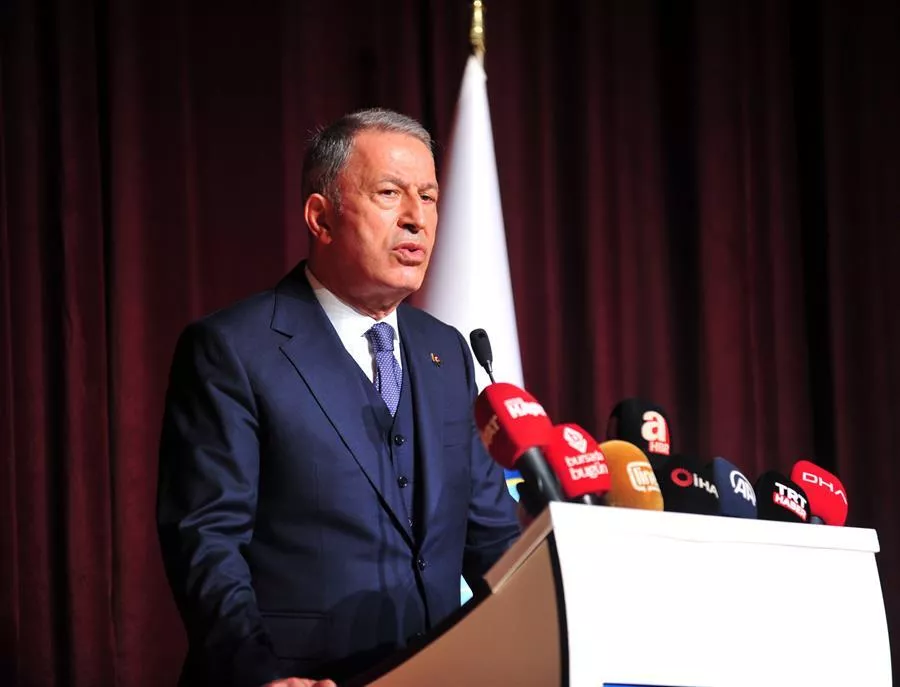Akar blames Greece for trying to escalate tensions
ISTANBUL

Defense Minister Hulusi Akar on Jan. 2 accused Greece of trying to increase tension in the Aegean with provocative actions and rhetoric due to domestic political considerations.
“We always tell our interlocutors that we are in favor of continuous dialogue and peace and that we want to solve our problems through negotiations within the framework of good neighborly relations and international law,” Akar said during his visit to TCG Anadolu assault ship.
The minister reminded the current consultation mechanisms, confidence-building measures and disengagement procedure meetings in NATO between Türkiye and Greece.
“Greece does not hold these meetings,” Akar said.
“It’s sabotaging. Some politicians and soldiers are constantly and consciously trying to increase the tension in order to cover up their inner troubles. We continue to work as cautiously as possible in this regard,” he said.
Stating that Greece continues with its provocative actions and rhetoric, Akar said, “They get up every morning and make every effort to create tension.”
Greece is trying to present its problems with Ankara as Türkiye-NATO, U.S. and EU problems, Akar said. “Everybody has understood his tricks now. We consider and expect that everyone will be more cautious in this regard.”
Türkiye’s statements are based on legal realities and concrete data, and despite this, there are many reasons originating from Greece for not getting a result, he stated.
“There is the eavesdropping scandal, the immigration scandal, corruption. However, Greece has failures in the eastern Mediterranean that it has failed to achieve and that the Greek public has noticed. To cover all this, they hope to increase tensions with Türkiye. But we want them to see that it is not possible for them to survive by creating tension, and diversion is not profitable,” the minister stated.
The Greek politicians are trying to promote their chauvinistic policies, he said. “Everyone began to see that there was no way out. The Greek people, too, began to see how their own resources were wasted and squandered by these politicians and how their well-being was destroyed. Along with these, some sane politicians, academics, retired soldiers, ambassadors and citizens in Greece started to see the game here.”
Reacting to the statements of some Greek politicians describing Türkiye as a threat, Akar said, “Türkiye is not a threat to anyone, it is a reliable, strong and effective ally. This is how it should be known. Türkiye is not a threat to anyone. They have to get it in their head over and over again, they have to understand it.”
He emphasized that Türkiye’s calls for dialogue should not be understood as a weakness. “We are talking about the fair sharing of the riches in the Aegean within the framework of good neighborly relations. However, we also say that we will never violate the rights and laws of ourselves or our Cypriot brothers, and we will not allow any fait accompli,” Akar stated.
He stated the importance of the objective approach of the third parties to the events and said, “Don’t be an emotional, biased party, we want them to evaluate the events fairly, objectively and impartially.”
Describing the Cyprus issue as a “national issue,” Akar said, “We stand by our Cypriot brothers and sisters in line with the Treaty of Guarantee and Alliance, as in the past. We are talking about two sovereign, equal and independent states in Cyprus. Now, the issue is not the establishment of this state, but the recognition of this established state.”
















